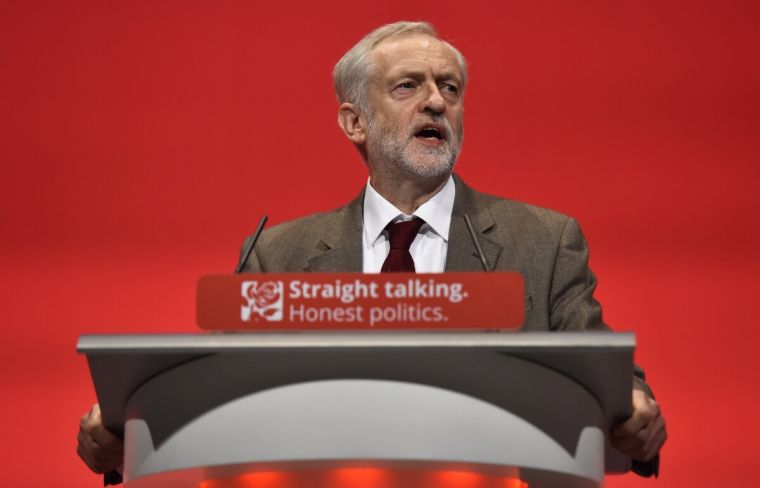Corbyn echoes Keir Hardie's call for 'divine discontent' in Labour Party conference speech

Jeremy Corbyn delivered a rousing first speech at the Labour Party conference after becoming Labour leader earlier this month.
Corbyn, who has delivered many speeches for activists and protesters but never in such a high profile role, spoke extensively about justice, human rights and wanting to do politics in a new way.
Clearly not enjoying his first use of auto-cue, Corbyn delivered a vicious attack on several Conservative policies and drew a standing ovation mid-speech for an earnest plea for a "kinder, more caring" way of doing politics.
He called on David Cameron to intervene to stop the beheading of Ali Mohammed al-Nimr by Saudi Arabia, and launched an unexpected attack on what is considered to be a Conservative stronghold, the economy.
He said he remained committed in his opposition to renewing Trident, praised the NHS and the BBC (while attacking the media in general) and criticised Cameron for breaking his election promise not to cut tax credits.
His speech has drawn mixed reviews from various Christian figures involved in the Labour movement, who admire his authenticity and passion but are more cautious about what the result will be.
Stephen Timms MP, a senior member of the Labour party and a Christian, spoke to Christian Today in the immediate aftermath of the speech.
"Jeremy has delivered a huge surge of energy and support to the Labour party since he became leader," the former Chief Secretary to the Treasury said.
"The Labour Party has almost doubled in size since the election which is a remarkable achievement.
"The challenge now is to move from energising thousands to pursuading millions. He has started doing that but it is clear to all of us in the party that there is a lot of work still to do."
Labour Party member Mark Russell, CEO of the Church Army, said the speech was "authentically Jeremy Corbyn".
"His passion for social justice and human rights shone through," he told Christian Today. "I was pleased to see his conviction to stand up for those in poverty, but I think this was a speech that spoke to the party more than the country.
"However I was delighted to see him quote Jesus Christ, and end his speech quoting that great Christian Socialist Keir Hardie, calling Labour to stir up a 'divine discontent with wrong'."
Corbyn finished his speech by referring to "the last man with a beard to lead the Labour party" before quoting Hardie.
Like Hardie, Corbyn is a strong advocate for workers' rights and justice issues. He was at his best when speaking about poverty, injustice and human rights but struggled when he occasionally tried to come across as a quieter, more analytical figure.
Andy Flannagan, director of Christians on the Left, said: "In attempting to channel the avowedly Christian Keir Hardie's 'divine discontent' Jeremy Corbyn has opened up something quite startling. There are many believers in the UK who feel that same prophetic divine discontent about the state of our nation and our world. Many will spot a more open door through which to offer their wisdom and gifts."
Flannagan praised Corbyn, who is not religious, for attending Christians on the Left's church service on the first morning of the conference. "[He] went out of his way to establish a dialogue with Christians on the Left, so that we could 'learn from one another'. We look forward to drawing the wider church into that discussion," Flannagan said.
"The enthusiastic reception to this speech needs some context," he added. "In terms of regular Labour conference delegates, Jeremy Corbyn was starting from a very low base in terms of loyal followers. The rapt attention and knee-jerk positivity of many choreographed political speeches could not be counted on. People warmed to the speech in the same gradual way that people have been warming to the new context all week here in Brighton. People are relaxing and enjoying the not-yet-quite-forgotten feeling of actually saying what you believe and discussing it like a grown-up with those who might disagree rather than pretending everyone is on the same page, or winning arguments by force rather than persuasion."











